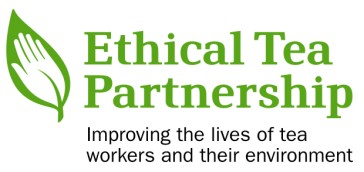What tea professionals need to start the week of June 30, 2014 —
Tea garden workers in India abandoned by estate management are starving… Green tea appears to protect the prostate… crafty artists are making ornate flowers out of intricately folded tea packets.
Empowering Smallholders
DARJEELING, West Bengal – Word this week of the starvation deaths of several tea workers at an abandoned tea garden was refuted by government officials who visited Raipur Tea Estate in Jalpaiguri district.
Conflicting accounts and no formal autopsies leave the exact cause of death in question, but the incident has focused attention on the plight of up to 30,000 workers on 23 gardens abandoned in the past several years.
Press reports, including the Times of India, last week described six deaths, including infants, but West Bengal Food and Supplies Minister Jyoti Priya Mallick, on Sunday toured the Raipur Tea Estate with North Bengal Development Minister Gautam Deb and said the deaths were due to disease and illness.
Deb told the The Hindu “there have not been any starvation deaths in the tea garden. I have talked to the family members of six workers who recently died and they told me that they were suffering from illnesses such as tuberculosis and high blood sugar,” said Mallick.
A physician on Saturday confirmed evidence of malnutrition at the garden where workers continue to pluck leaves without a wage.
Like the 460 workers at Raipur there are thousands struggling toj survive on abandoned estates in West Bengal, Kerala and Assam. Tea plantations are mandated to provide shelter, medical care, food subsidies and a minimum wage but once abandoned the resources disappear.
When a garden closes workers with skills operating a tea factory and those young enough to prune and pluck leaves simply move on leaving the weak and less skilled workers to fend for themselves. At Raipur workers continue to pluck leaves without drawing a wage to sell to bought leaf factories.
On Sunday Mallick announced steps to improve the supply of subsidized rations to workers and awarded INRs 5000 ($83) to the families of the dead. A vigilance inspection was ordered at 20 other gardens, according to The Hindu.
The distressed gardens failed during difficult financial times beginning in 2004, reopen periodically and fail.
The government will also try to convince owners of the tea gardens to reopen them, according to Mallick but banks are unwilling to write off the millions in debts and new owners can bear to make good on bad loans and non-performing assets.
The state of Kerala took a different approach, reopening many gardens that had failed mainly by permitting workers ownership. West Bengal had no such success.
Kerala’s experience is powerful testimony to the important work of training smallholders to strike out on their own.
 Last week the Ethical Tea Partnership and IDH – the Sustainable Trade Initiative announced a very successful pilot program of outdoor classrooms that has trained 48,000 Kenyan smallholders to improve their agricultural skills and to process tea.
Last week the Ethical Tea Partnership and IDH – the Sustainable Trade Initiative announced a very successful pilot program of outdoor classrooms that has trained 48,000 Kenyan smallholders to improve their agricultural skills and to process tea.
ETP announced a coalition of major tea companies would expand the program to 200,000 smallholders in Africa and Asia’s tea growing countries within the next three years.
ETP’s hands-on training in irrigation, composting, plant nutrition and protection from insects has increased yields by as much as a third. The Kenya Tea Development Agency (KTDA) supports the program through 1,600 Farmer Field Schools.
 “Tea provides a livelihood for millions of people around the globe. These projects show that the industry is committed to helping smallholder farmers and workers earn a decent wage and farm better, and that it understands that this is fundamental to building secure supply chains and future success,” said ETP Executive Director Sarah Roberts.
“Tea provides a livelihood for millions of people around the globe. These projects show that the industry is committed to helping smallholder farmers and workers earn a decent wage and farm better, and that it understands that this is fundamental to building secure supply chains and future success,” said ETP Executive Director Sarah Roberts.
Targeted nations include Malawi, Uganda, Rwanda, Tanzania, India and Vietnam. The effort is funded by multi-nationals that include Unilever and Tata Global Beverage and Taylors of Harrogate producers of Yorkshire Tea.
The Confederation of Indian Small Tea Growers Association (CISTA) is seeking assistance similar to Kenya and Sri Lanka to ensure better execution and monitoring of various tea production and promotional schemes. It will also help initiate a pilot program to develop an alternative market for small tea growers, according to The Hindu Business Line.
This, in turn, will help small tea growers produce better quality green tea leaves and ultimately upgrade themselves from mere green leaf producers to made-tea producers, according to the CISTA release.
In London delegates to the annual TEAm Up conference acknowledged it will take more than government programs to resolve key social and environmental issues affecting the sector. ETP and IDH, joint hosts of the event, updated producers, packers and retailers on the progress of their pioneering projects and explored how action to tackle them can secure supply chains and build brands’ reputation.
“It is amazing to see how the tea industry is making serious efforts and investments to address difficult issues such as wages and smallholder inclusion,” said IDH Chief Executive Joost Oorthuizen. “These and other deeply rooted problems, that only a few years ago were ‘owned’ by civil society groups, are now high on the agenda of the international tea industry. We can use this positive energy by working together, and collaborating with retailers, government agencies and NGOs, who all have a part to play.”
Learn more at: Ethical Tea Partnership
Green Tea Protects Prostate
The American Cancer Society projects that 233,000 men will be diagnosed with prostate cancer in 2014. It is the most prevalent type of cancer in men after skin cancer, affecting one in seven men in the course of their lives. Given tea’s reputation as a healthful beverage with powerful antioxidants, it is not surprising that researchers would be considering the potential impact of green tea on prostate cancer.
A new report published by “Metabolomics”in May 2014 found that epigallocatechin-3-gallate (EGCG), a catechin in green tea, may affect the work of one of the enzymes that powers cancer metabolism.
In many cancer types, the enzyme Lactate dehydrogenase A (LDHA) is present in elevated amounts. LDHA affects the way that the chemical compound pyruvate is processed. Pyruvate is produced in glycolysis and would typically continue to metabolize, giving the body’s cells energy. When cells lack the oxygen they need, pyruvate is instead converted to lactate because of the presence of the enzyme LDHA. Elevated LDHA keeps a process going that feeds the growth and survival of the tumor and also promotes the migration of the cancer cells throughout the body. It is suspected that if LDHA can be targeted, the growth of the cancer cells may be slowed. Researchers believe that treatments that impact LDHA may be important in future therapies.
In this study, led by Qing-Yi Lu of the Department of Medicine at UCLA, EGCG reduced the production of lactate in human pancreatic adenocarcinoma cells (MIA PaCa-2), as well as other metabolic processes such as anaerobic glycolysis, consumption of glucose and the glycolytic rate. It was assessed that the treatment “significantly modifies the cancer metabolic phenotype.”
The National Institute of Health reports being involved with five current trials related to prostate cancer and green tea extracts including studies on early stage prostate cancer, men having radical prostatectomies, and patients with low-risk cancers.
Source: Metabolic consequences of LDHA inhibition by epigallocatechin gallate and oxamate in MIA PaCa-2 pancreatic cancer cells, Metabolomics, Lu, Qing-Yu; Lifeng Zhang, Jennifer K. Yee, Vay-Liang W. Go, and Wai-Nang Lee. Accepted for publication May 2014.
Folded Flowers from Tea Bags
Here is a clever challenge for crafty tea drinkers who like origami. This video shows how to fold square tea wrappers into pinwheel like flowers.
 Paper Printables shows you how to make a cute little paper star from just 8 tea bag sized bits of paper. Super easy and novel greeting card or gift wrap embellishment. Just download a beautiful tea bag design from http://paperprintables.com/ and get folding!
Paper Printables shows you how to make a cute little paper star from just 8 tea bag sized bits of paper. Super easy and novel greeting card or gift wrap embellishment. Just download a beautiful tea bag design from http://paperprintables.com/ and get folding!
Source: Scrap Books, Crafty Attic
Tea Biz serves a core audience of beverage professionals in the belief that insightful journalism informs business decision-making. Tea Biz reports what matters along the entire supply chain, emphasizing trustworthy sources and sound market research while discarding fluff and ignoring puffery.
Tea Biz posts are available to use in your company newsletter or website. Purchase reprint and distribution rights for single articles or commission original content. Click here for details.



